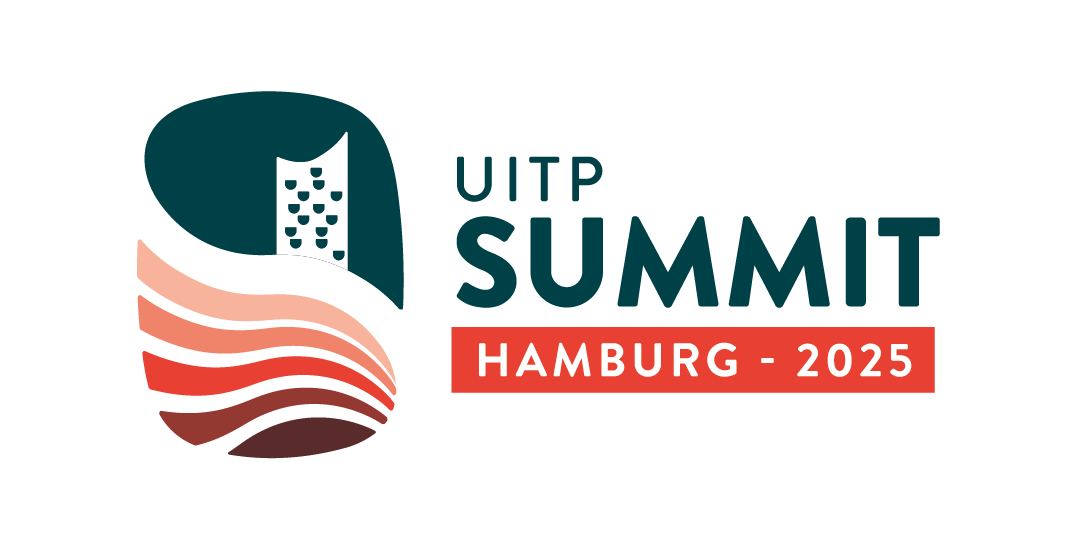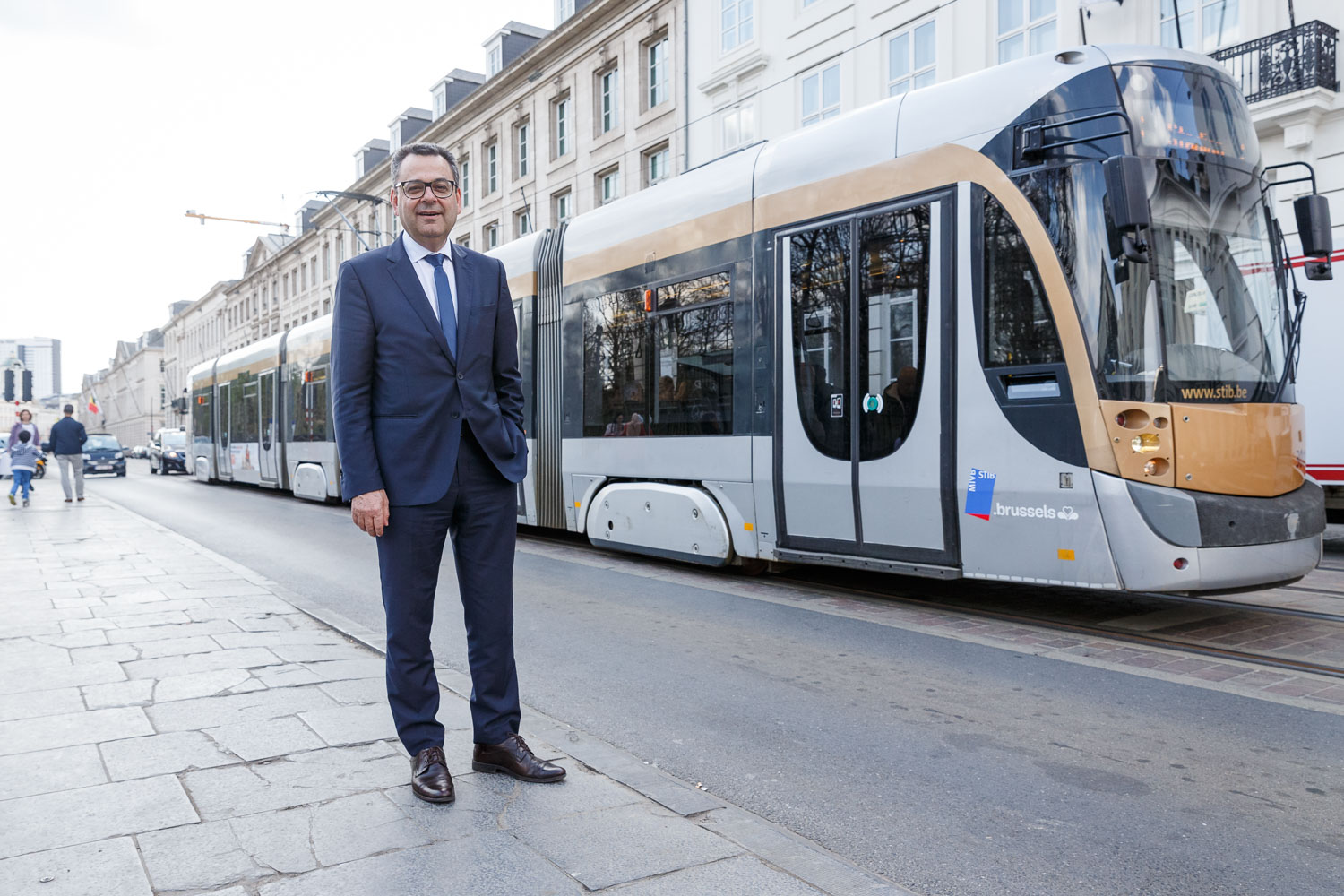
Amilcar: make transit a climate priority
27 April 2025
Speaking to Cities Today, UITP President and OC Transpo General Manager Renée Amilcar outlines why public transport must be at the centre of climate action, equity, and urban innovation. From zero-emission fleets to inclusive leadership, she’s calling on decision-makers to treat transit as a global priority.
How are you using your UITP presidency to push for stronger commitments from governments and decision-makers to accelerate public transport’s transition to net zero?
One of the pillars of UITP’s priorities is to advocate for public transport to policy and decision makers. Public transport needs to be further up the agenda when it comes to the legislative process, and it should be further prioritised by policy makers. I deal with this in my day-to-day role at OC Transpo [the primary public transport agency for the city of Ottawa], and have also made it a priority of my Presidency at UITP.
At UITP, we have increased our activities to better engage with policy makers through targeted outreach, specific communication campaigns, and high-level interaction at events such as the UITP Summit.
Last year, I took the pledge to advocate for public transport at the highest level straight to the United Nations, where I gave an intervention during the High-Level Meeting on Sustainable Transport in New York City. I advocated not only for a stronger focus on supporting public transport as a policy priority, but to make clear the essential need for more mass transport in our urban spaces.
Per passenger, public transport emits 3 to 4 times less CO2 emissions than cars.
Urban population growth will continue to expand. Without further investment and further political capital, access to public transport cannot grow alongside the number of people who require it. This would mean that we cannot deliver the sustainable development goals of expanding public transport by 2030. This is too vital to ignore, and an intervention by all policy makers is essential to keep pace with need and demand.
We need effective governance and agile regulation; solid and stable long-term funding and business plans – as well as ambitious political leadership. Public transport is a solution to the climate crisis, and I’m using my platform to insist on long-term funding for the sector.
As the first woman to lead UITP (and OC Transpo), what initiatives will you introduce to build a more inclusive and resilient workforce while championing diversity, equity, and inclusion?
I was honoured to become the first woman President of UITP in 2023 during the vote of our members at the General Assembly in Barcelona. I am also the first woman to lead OC Transpo. I hope that my position can prove to be a visible example of what women can achieve within public transport. We need more women at all levels across public transport and to advance that we need to continue recognising where obstacles exist. Promoting the need for a more gender-balanced sector is a priority for my Presidency.
At UITP, there is our Diverse Panel Charter, which ensures gender-balanced representation at our events, no male-only panels, and a significant increase in women on the association’s boards.
At OC Transpo, we have the EmpoWered@theWheel initiative, which exists to increase the representation of women among bus operators and support staff. This program offers dedicated recruitment events and information sessions, providing women with insights into the roles and fostering an inclusive work environment.
If I can be an example to that opportunity, then I welcome that spotlight.
How can UITP help operators improve efficiency and rebuild public trust in transit networks, particularly in the face of financial constraints and shifting ridership patterns?
UITP can play a pivotal role in helping operators improve efficiency and rebuild public trust, especially during times of financial pressure and evolving ridership trends. UITP facilitates the exchange of knowledge across its global network, giving operators access to case studies on successful post-pandemic recovery strategies, benchmarking tools, and reports on evolving mobility patterns.
We must also make sure that the sector is advancing the latest innovations and digital tools. The pandemic changed behaviours and habits, and passengers want more options for movement and better services with integrated mobility solutions. The main aim should always be the efficient and smooth movement of people, and innovation can be at the very centre of that.
Public transport is essential, so as an essential service it must have both visibility and be a policy priority.
With AI-driven scheduling and on-demand mobility transforming transit, how can UITP ensure these innovations enhance passenger experience rather than create barriers to accessibility?
The passenger must always be at the heart of what we do. Any technological development must be implemented to advance the needs of the passenger, not impede them. AI technologies are advancing quickly. Today, AI is mainly used to assist data analysis and predictive modelling. Already, many public transport organisations around the globe use the power of AI tools to make operations safer, more efficient, and more comfortable for passengers and maintenance more predictive and less costly.
There are huge opportunities to advance the ways in which we move, and to also provide better communication and better services to the passenger. With Mobility-as-a-Service, on-demand mobility, smart ticketing–these developments are advancing what is on offer to our passengers.
We must also make sure that passengers are not left behind as the digital realm expands. Moving by public transport should be as smooth and reliable as possible, and by embracing technological advancements we can advance the passenger experience.
What lessons from Ottawa’s experience could inform global discussions at the UITP Summit on making transit networks more adaptable?
I have made it my personal goal to ensure that Ottawa’s transit network grows into a system that we and future generations can be proud of. This will be made possible by extensive planning and a commitment to delivering excellent service on every trip.
Passenger travel patterns have changed since the COVID-19 pandemic. In 2023, we undertook a multi-phased review of our bus network that included feedback from customers, employees, and third-party experts. Based on this feedback and updated transit planning principles, we designed a new bus network to match new travel patterns.
This new network, known as New Ways to Bus, will see a shift from downtown-focused bus routes to routes that improve connections to community hubs, key destinations, and improved access to our O-Train network.
We will be monitoring these changes closely and will continue to evolve to meet the needs of the people who depend on us.
What strategies is OC Transpo implementing to make public transport the preferred choice post-pandemic, and how do these align with UITP’s broader goals for sustainable mobility?
One of the key goals articulated in the City of Ottawa’s Official Plan is for the majority of residents’ trips to involve sustainable transportation modes such as walking, cycling, transit or carpooling by 2046.
OC Transpo has established a five-year roadmap that provides a clear vision for the future. We are expanding our rail network which will extend the benefits of the O-Train system across Ottawa. In the coming years, our O-Train network will be 64 kilometers long, include 41 stations, and will bring 77% of Ottawa residents within 5 kilometers of the O-Train system.
The electrification of our bus fleet is well underway with 18 zero-emission buses currently in service and 80 more anticipated to arrive in 2025.
We have made fare payment more convenient through O-Payment which allows you to pay your fare by tapping with Interac® Debit card, Visa, Mastercard, or Google Pay or Apple Pay. OC Transpo was also the first transit agency in Canada to introduce fare capping for credit card and mobile wallet payments.
Join Amilcar and other global leaders in sustainable urban mobility at the UITP Summit 2025 in Hamburg, 15-18 June, where the future of public transport will be shaped through innovative sessions, networking, and hands-on experiences.




